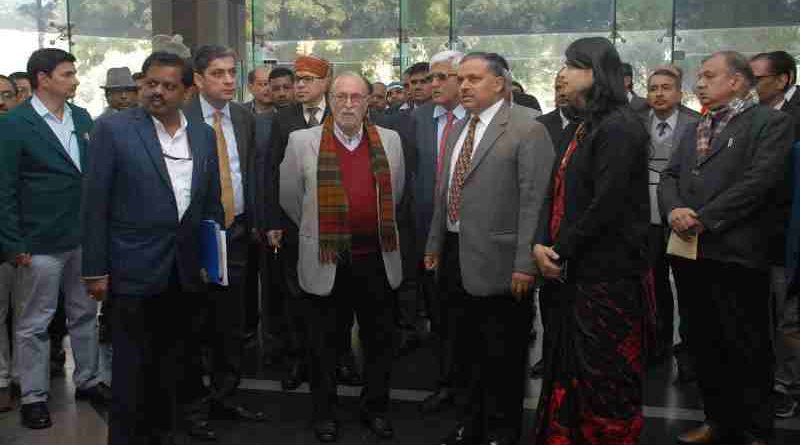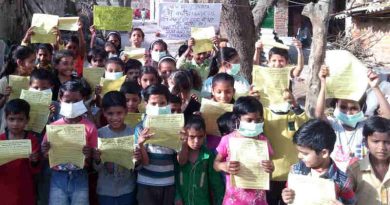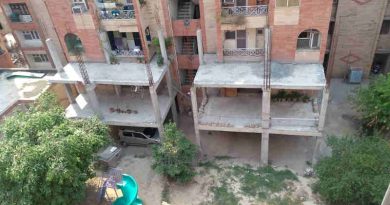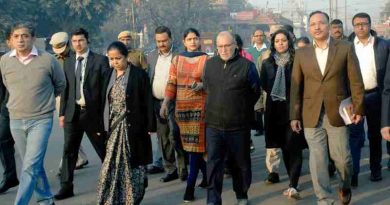Delhi Lieutenant Governor Orders Swift Completion of Sports Complexes
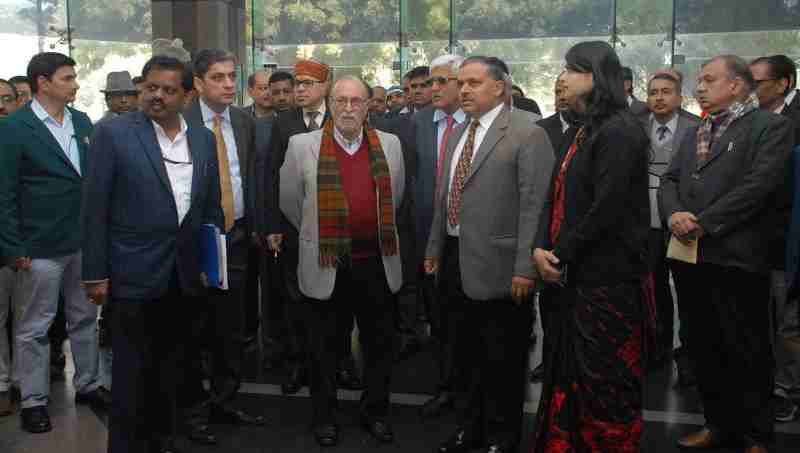
As the construction projects give enormous opportunities to the managing committees of housing societies to make easy money, they are suppressing the voice of those residents who oppose extended construction.
By Rakesh Raman
The Lieutenant Governor of Delhi Anil Baijal chaired Wednesday a meeting of the Delhi Development Authority (DDA) officials with the aim to streamline the sports infrastructure in the city.
Among other points, Mr. Baijal directed swift completion of new sports complexes at Dwarka, Rohini, and Narela. He also asked the officials to ensure foolproof maintenance of existing infrastructure for quality services.
As housing is also part of the overall infrastructure in residential areas of Dwarka, Rohini, and Narela, Mr. Baijal is also expected to take strict measures to ensure clean environment at these places for the local citizens.
Currently, for example, hundreds of thousands of citizens in Dwarka are facing an immediate threat from dust and noise pollution in group housing complexes. The same is happening in other areas of Delhi.
The managing committees (MCs) of many housing societies are distorting the floor area ratio (FAR) rules of the government to mislead the residents and start pollution-laden extended construction projects in occupied societies.
[ Delhi Residents Unite to Stop Construction and Pollution in Dwarka ]
Although the government guidelines are totally ambiguous, the group housing complexes have started massive construction activities in the buildings where people are already living. As the construction projects give enormous opportunities to the managing committees of housing societies to make easy money, they are suppressing the voice of those residents who oppose extended construction.
Plus, the entire extended construction project in Delhi is worth billions of dollars and it is believed to be supported by builder mafia in connivance with top Indian politicians.
The dust and noise pollution emanating from the extended construction activity is bound to take its toll as it will cause severe health hazards and probable deaths among people.
The people who oppose extended construction argue that the permission to allow additional construction in group housing societies is illegal because it violates the fundamental rights guaranteed to the citizens in the Constitution of India.
[ Dust Pollution: Your Children Are Not Safe in Delhi ]
The Article 21 of Indian Constitution assures the citizens of India the right to a healthy, pollution-free environment – which is also a basic human right. If the avoidable construction is carried out in the group housing complexes where people – men, women, and children – are already living, it will deprive them of their right to live in a clean environment.
Chaired DDA meeting on sports infra. Directed for proper upkeep of Sports Complexes and strengthening coaching & training facilities. (1/2) pic.twitter.com/B0WWrnngA4
— LG Delhi (@LtGovDelhi) April 5, 2017
Moreover, no activity can be legal if it poses a risk to even one person’s life. The truth is that the extended construction-related pollution will put to risk the lives of hundreds of thousands of people living in a locality. Thus, extended construction – which is driven by greed, and not by need – is an illegal activity.
Directed swift completion of new Complexes at Dwarka,Rohini & Narela,and foolproof maintenance of existing infra for quality services.(2/2) pic.twitter.com/TMY2V6Jp3N
— LG Delhi (@LtGovDelhi) April 5, 2017
The National Green Tribunal (NGT) of India has also observed that one of the major sources of air pollution is dust emission from construction activities, which must be stopped to avoid pollution-related diseases and deaths.
Even if one person in a particular housing complex opposes construction, he / she wants their fundamental human right to pollution-free environment protected. So, such construction cannot be carried out in that locality.
The government’s oblique permission to allow extended construction in the existing upmarket flats is not addressing any housing needs in the country where millions of people are still homeless.
In view of these facts, the Delhi Government must stop the extended construction in occupied group housing societies. It should also clarify its stand on extended construction through advertisements in leading newspapers and information on government’s own websites.
By Rakesh Raman, who is a government’s National award-winning journalist and runs free school for deserving children under his NGO – RMN Foundation.
Photo courtesy: Delhi Government


